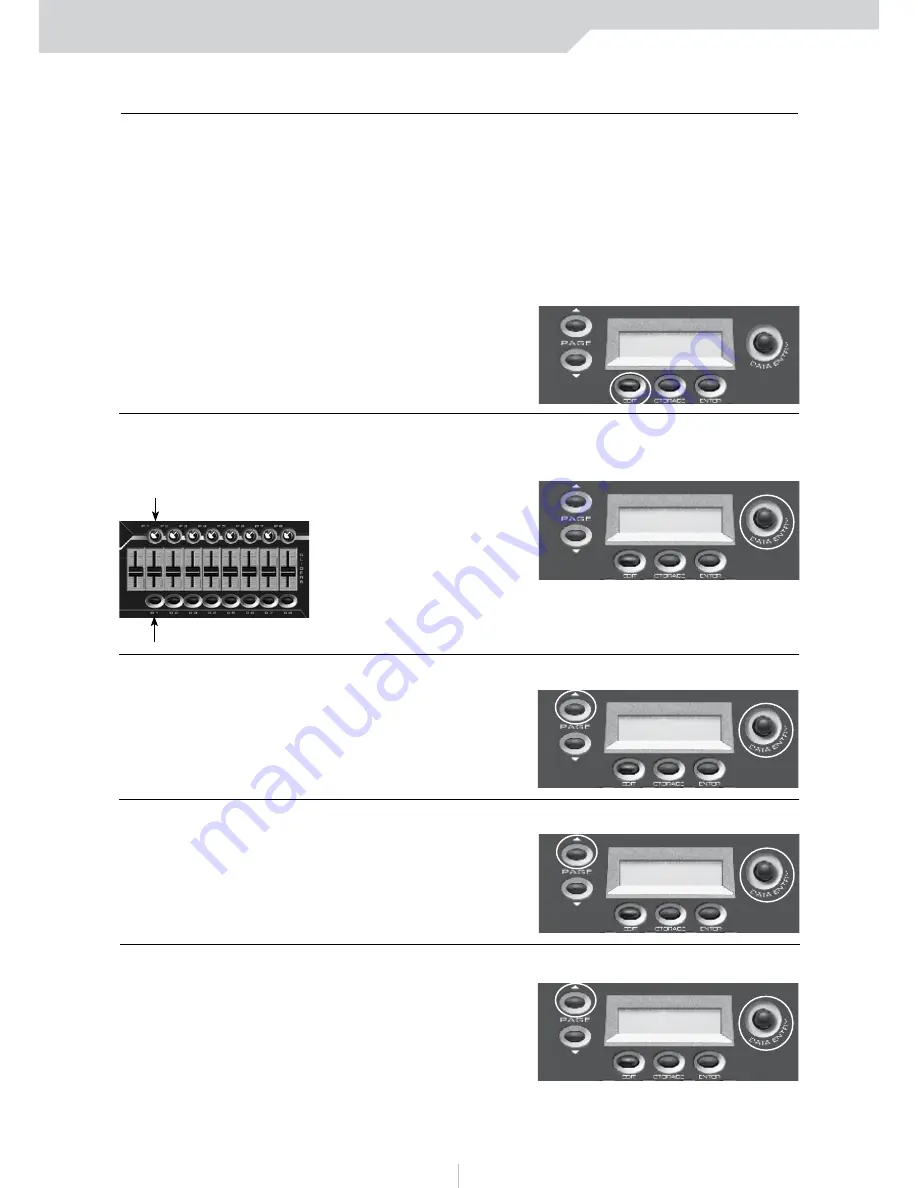
I n s t r u c t i o n m a n u a l
VMK SERIES
19
buttons
PROCEDURE: BUTTON PROGRAMMING
We will set up a BUTTON to behave like a simple ON/OFF switch, or Latch Switch. Press the BUTTON once and the Switch will be on.
Press the BUTTON again and the Switch will be off. Programming Transport BUTTONS follows the exact same procedure.
TIP:
This can be very useful to control the Mutes on your Audio/Sequencing program. Most Pro and Semi Pro Audio/Sequencing
programs will allow you the option to control various functions of the program from an external controller, in this example, control-
ling the Mutes on your virtual mixer. (See your Program’s manual for details.) Each
BUTTON
can behave like a Latch, used in this
Mute example (SWITCH MODE), or like a Momentary (PUSH MODE) switch. A Momentary switch will only function when the
BUTTON
is
held
down. This is very useful for the
Fwd BUTTON
and
Rew BUTTON
in the Transport section.
1) PRESS EDIT
2) PRESS BUTTON
In this example Move
SLIDER 1
w/
Bank A
Selected
(Remember: keep track of
your BANKS when programing!)
3
)
PRESS PAGE UP
In this example we’ll use
CTRL Change
number 10.
You may adjust this to any
CTRL number you desire.
4) PRESS PAGE UP
Set the
Key Note
to 60.
Key range is 0-127
5) PRESS PAGE UP
SWITCH:
Press button once,
a
NOTE ON
Message will transmit.
Switch is
ON
.
Press button again, a
NOTE OFF
Message will transmit.
Switch is
OFF
.
PRESS OR MOVE
ANY CONTROLS
SCREEN
CHANGE
EDIT SLIDER
51
MIDI CHANNEL
OFF
SCREEN
CHANGE
To adjust the
Midi Channel
use the
DE
knob
EDIT BUTTON:
B1
CTRL CHANGE:
OFF
SCREEN
CHANGE
To adjust the
CTRL Change
use the
DE
knob
EDIT BUTTON:
B1
CTRL CHANGE:
OFF
SCREEN
CHANGE
To adjust the
Key Note
use the
DE
knob
EDIT BUTTON:
B1
KEY NOTE:
SWITCH
SCREEN
CHANGE
To adjust the
Key Note
use the
DE
knob
Press BUTTON (1)






























